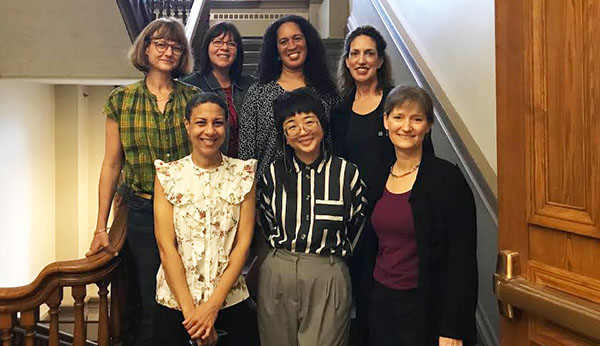Document Type
Article
Publication Date
2020
Publication Title
Gender, Place & Culture
Abstract
Knowledges that claim to end oppression and marginaliza- tion frequently end up feeding the same hierarchies that produce those oppressions. In the academy and in the development industry, it is not uncommon for ‘local’ or ‘subaltern’ knowledges to be positioned as ‘raw data’ to be utilised by the formally certified intellectual or expert, and even presented sometimes as obstacles to development goals that may have been imported from elsewhere . This introduction serves as an opening to a ‘conversation’ among five scholars who have different yet overlapping engage- ments with the complex terrain of knowledge-making on sex and gender, based on their long-term work in India. The conversation interrogates the knowledge hierarchies that are implicit in the way gender, sex, sexuality and empower- ment are conceived, presented and pursued by scholars and practitioners in development studies. Through four essays, each of them followed by a written exchange among authors, we jointly consider the terrain of know- ledge production by engaging variously with critical schol- arly engagements that have sought to reimagine, reclaim, or theorize ‘local knowledge.’ This involves pausing, center- ing, and lingering with those tales, life histories, songs, epics, and other forms of narrative practices that have often been pushed aside in scholarly engagements. In thus chal- lenging the universality that is valorised, we engage histor- ical-material diversities of gendered practices and experiences and recognise the fluidities and multiplicities of the positions from which knowledges about sex, gender, and empowerment emerge, define, and reshape our worlds.
Keywords
Empowerment, feminist epistemology, India, sex and gender, women’s knowledge
Volume
28
Issue
2
First Page
153
Last Page
160
DOI
10.1080/0966369X.2020.1764914
Version
Author's Accepted Manuscript
Recommended Citation
Lahiri-Dutt, Kuntala; Nagar, Richa; Gilbertson, Amanda; Roy, Ahonaa; and McCarthy, Annie, "Revisiting the Epistemic Terrains of Gender, Sex, and Empowerment Through Four Sites of Engagement in India: Introducing a Conversation" (2020). Study of Women, Gender, & Sexuality: Faculty Publications, Smith College, Northampton, MA.
https://scholarworks.smith.edu/swg_facpubs/58


